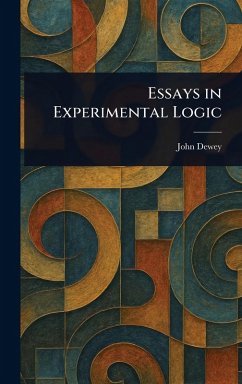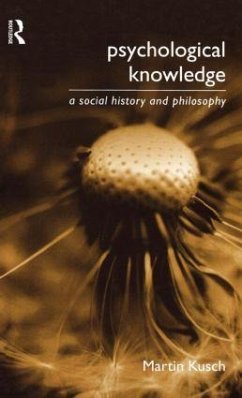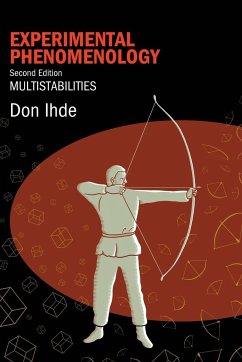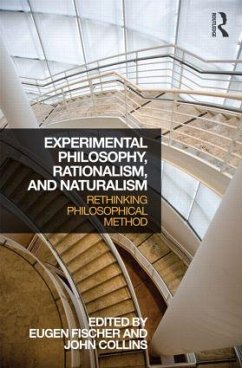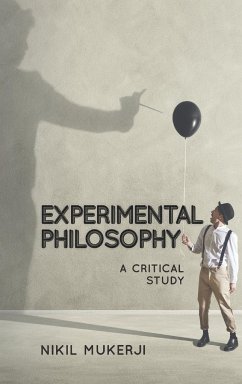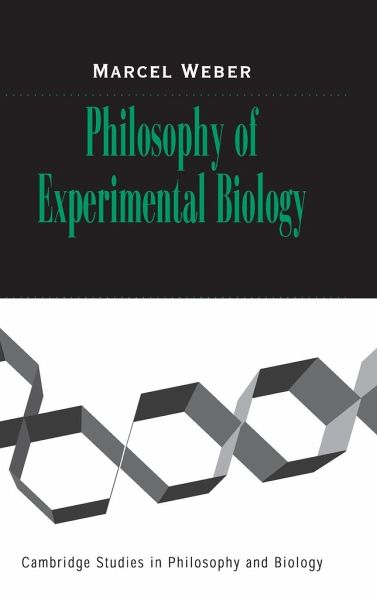
Philosophy of Experimental Biology
Versandkostenfrei!
Versandfertig in 1-2 Wochen
85,99 €
inkl. MwSt.
Weitere Ausgaben:

PAYBACK Punkte
43 °P sammeln!
Short description/annotationExplores some central philosophical issues concerning scientific research in modern experimental biology.Main descriptionPhilosophy of Experimental Biology explores some central philosophical issues concerning scientific research in modern experimental biology, including genetics, biochemistry, molecular biology, developmental biology, neurobiology, and microbiology. It seeks to make sense of the explanatory strategies, concepts, ways of reasoning, approaches to discovery and problem solving, tools, models and experimental systems deployed by modern scientific life ...
Short description/annotation
Explores some central philosophical issues concerning scientific research in modern experimental biology.
Main description
Philosophy of Experimental Biology explores some central philosophical issues concerning scientific research in modern experimental biology, including genetics, biochemistry, molecular biology, developmental biology, neurobiology, and microbiology. It seeks to make sense of the explanatory strategies, concepts, ways of reasoning, approaches to discovery and problem solving, tools, models and experimental systems deployed by modern scientific life science researchers and also integrates recent developments in historical scholarship, in particular the New Experimentalism. It concludes that historical explanations of scientific change that are based on local laboratory practice need to be supplemented with an account of the epistemic norms and standards that are operative in science. This book should be of interest to philosophers and historians of science as well as to scientists.
Table of contents:
1. Introduction; 2. Reductionism and the nature of explanations; 3. Discovery: solving biological problems; 4. Scientific inference: testing hypotheses; 5. Experimental systems: a life of their own(?)33;; 6. Model organisms: of flies and elephants; 7. Reference and conceptual change: out of Mendel's garden(?)33;; 8. Developmental biology and the genetic program: explaining ontogeny; 9. Scientific realism: in search of the truth.
Explores some central philosophical issues concerning scientific research in modern experimental biology.
Main description
Philosophy of Experimental Biology explores some central philosophical issues concerning scientific research in modern experimental biology, including genetics, biochemistry, molecular biology, developmental biology, neurobiology, and microbiology. It seeks to make sense of the explanatory strategies, concepts, ways of reasoning, approaches to discovery and problem solving, tools, models and experimental systems deployed by modern scientific life science researchers and also integrates recent developments in historical scholarship, in particular the New Experimentalism. It concludes that historical explanations of scientific change that are based on local laboratory practice need to be supplemented with an account of the epistemic norms and standards that are operative in science. This book should be of interest to philosophers and historians of science as well as to scientists.
Table of contents:
1. Introduction; 2. Reductionism and the nature of explanations; 3. Discovery: solving biological problems; 4. Scientific inference: testing hypotheses; 5. Experimental systems: a life of their own(?)33;; 6. Model organisms: of flies and elephants; 7. Reference and conceptual change: out of Mendel's garden(?)33;; 8. Developmental biology and the genetic program: explaining ontogeny; 9. Scientific realism: in search of the truth.









